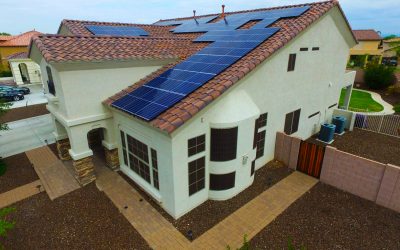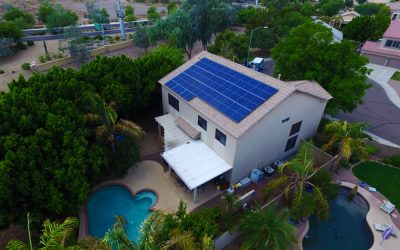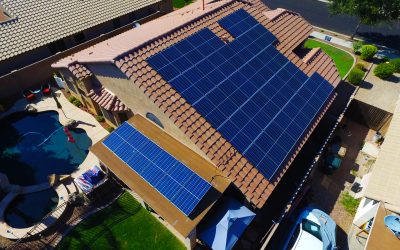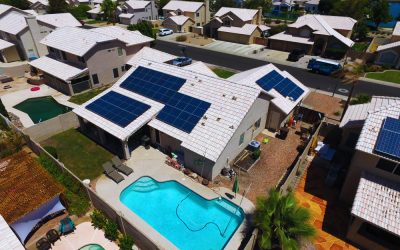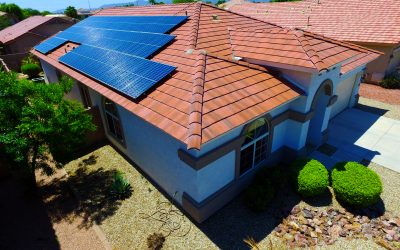01. YOUR CHOICES
To get started, the first initial appointment will be scheduled with our professional and experienced consultants to go over all your wants and needs when it comes to your solar installation. Contact us today to schedule your appointment to start saving money and energy in your home!
02. YOUR DESIGN
Your solar system is expertly designed for your specific project. We only use experienced design teams to ensure you get the best quality system possible, complete with the best products. Along with with design, a proposal is generated that outlines the economic and environmental benefits of your system.
03. YOUR INSTALLATION
After the proposal and financing options have been clearly presented, our experienced installation team gets started. Sun Energy Experts handles all the paperwork and works with the city, utility and your HOA. After your system is installed, it is thoroughly inspected and connected to your utility grid, and ready to be used!
How Does Solar Work?
Your 2019 guide to getting solar panels for your home in Arizona:
Ever wonder why solar seems to be everywhere in some states, but not in others? We did too.
State legislatures and public utilities commissions can enact rules to make solar power accessible for everyone. Favorable rules explain why some of the cloudiest states—New York, New Jersey, and Connecticut, are doing so well with solar, and yet some of those with the most natural solar resources—like Alabama, Mississippi, and Georgia—are doing so poorly.
While Arizona does have a renewable portfolio standard, it isn’t all that ambitious compared to some other states in the Union. The legislature has required utilities to derive at least 15% of their energy mix from renewable sources by 2025. About 15% of that requirement (or 2.25% of total sales) needs to come from residential sited renewable generation of electricity – like solar panels.
But that isn’t much these days. Arizona hasn’t updated its renewable law in years, and it’s getting taken over by states like New York, California, Vermont, and Hawaii. If AZ really wants to show us how it’s done when it comes to solar, we’re gonna need some strong new standards here, and quick!
Arizona’s renewable portfolio standards require utilities to generate a portion of their renewable output from distributed energy technologies — 30% to be exact. Additionally, half of this requirement must be derived from residential installations. Luckily for you, this requirement can be fulfilled by residential solar systems, but it is not limited to just solar panels.
The average cost of electricity in Arizona stands now at about $0.12/kwh – that’s pretty cheap. Too cheap for our comfort, actually. Natural gas is driving those costs down, and the state and feds have been subsidizing coal for too long. Once that price comes up with the associated costs of burning dirty fossil fuels, you’ll see the payback time frame for solar decrease dramatically.
Why are electricity prices so important? Because that is what solar power is directly competing against. The cost to produce power with solar is relatively constant (of course how much sun hits your area has an effect), so if you are paying $0.40 per watt for power, then you make FOUR TIMES AS MUCH as the guy or girl paying $0.10 per watt electricity.
The caveat here is that if the $0.10 per watt person has a HUGE rebate, they may be better off than the $0.40 per watt person. Because of that, states without any renewable standards tend to be heavily reliant on cheap coal for electricity, and also have very low electricity prices. When electricity prices are artificially low, that hinders the ability of solar energy to achieve meaningful payback in the state.
What’s net metering? It’s the policy that lets you store your extra solar energy with the utility, and they then credit your bill at night when the sun ain’t shining anymore. So, no batteries needed.
The trouble here is, Arizona Public Service (APS), the state’s largest utility company, has done everything they can to kill net metering in the state. Extra fees on solar owners, reduced payments for your electricity, etc. They’ve even been caught texting members of the committee responsible for deciding what to do about net metering in the state. Ugly, man.
It’s bad enough to earn the state a “C” grade unless and until they can turn things around. We’re hopeful that will happen sometime before 2024, but there’s no telling what will happen. After all, this is the state that elects anti-solar governors and votes against increasing the share of renewable energy they use.
What is net metering? Net metering is the billing arrangement where you can sell excess electricity back to your utility for equal the amount you are charged to consume it. The more customer friendly net metering policies, the higher the grade.
The grade here specifically reflects individual solar system capacity, caps on program capacity limits, restrictions on “rollover” of kWh from one month to the next (yep just like cell phone minutes), metering issues (like charges for new meters), Renewable Energy Credit (REC) ownership, eligible customers and technology (the more renewables the better), being able to aggregate meters across the property for net metering, and safe harbor provisions to protect customers from solar tariff changes.
Next to high electricity prices and net metering, solar incentives have traditionally been the most important factor for whether home solar power makes financial sense in a state. In the past, some states with otherwise lousy policy had tremendous incentives that drove down the up-front cost of going solar so much that homeowners could save oodles of money even without net metering or a good RPS.
These days, the big incentive most people can get is the Federal Solar Tax Credit that earns you 30% of your costs back after just 1 year. State incentives play less of a role than in the past, but some really good ones are still out there, ready to help homeowners go solar and save money before you know it.
With its strong RPS, Arizona once had a great variety of solar panel rebate programs offered by nearly all the state’s electric utilities. However, many of those generous solar panel rebate programs have been exhausted because utilities are getting close to meeting their requirements for off-site solar electricity production.
The good news is some rebates still exist for certain homeowners. The bad news is that they only exist for customers of a handful of rural electric co-ops.
How do solar rebates work? Similar to getting a rebate card from your local big box store for a dishwasher purchase, state legislatures also provide rebates for solar panel purchases to spur on investment and create new jobs. If you purchase the solar panel system yourself, you qualify for this free cash, which many times is a lump payment back to you. Some solar installers like to take this amount directly off the total installed price, and they’ll handle the paperwork for you to make things a lot less complex.
Every resident in Arizona who installs solar panels gets a State Tax Credit of 25% of the total system cost, up to $1000, to be used toward State income taxes. And of course, Arizonans also benefit from the 30% Federal Solar Tax Credit as well. There’s no cap on the federal tax credit and you’ll deduct that after you subtract your rebate.
About state solar tax credits: State tax credits are not technically free money. However, they are ‘credits’ and not ‘deductions’ which means that if you have the tax appetite to take advantage of them, then they can be a 1-to-1 dollar amount off your taxes instead of a fraction of the cost of the system. So that means they can be an important factor to consider. In certain circumstances, state tax credits can provide a very powerful incentive for people to go solar.
As a homeowner with solar panels in Arizona, you get two other great benefits from the state: your solar purchase is exempt from higher property taxes due to the increased value of your home and…
About solar property tax exemptions: Property tax exemption status is a pretty big factor when putting together your investment considerations. Some argue that solar power adds approximately 20 times your annual electricity bill savings (if you are owning the system and not leasing). Other studies seem to indicate a home price premium about equal to the cost of installing the system, minus any incentives like the federal solar tax credit.
For many average-sized solar power systems on a house, that can mean adding $20,000 to your home value. And if you don’t believe us, believe the bean counters: Many banks and solar financing companies now offer traditional style equity-based home loans for installing solar. An additional $20,000 in property tax basis in many states amounts to a big chunk of change owed back to the state. However, many states have complete exemptions from added taxes when you install solar on your home!
YOUR POWER. YOUR FREEDOM.
Lower your carbon footprint, help our environment, and
save money on your energy costs. Any or all of these maybe good reasons for solar, but the choices are yours, and they are very personal. Take control of your energy resources with your own, personal solar energy system.

